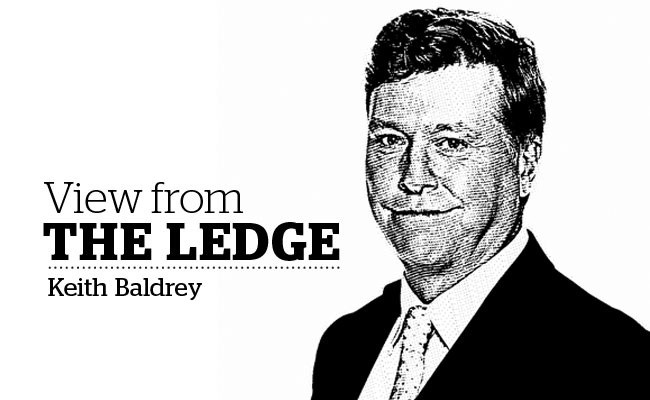The transit plebiscite in Metro Vancouver appears to have degenerated from being a Yes versus No battle to a Doom versus Gloom fight.
Both sides have predicted apocalyptic horror if the wrong side wins. Exaggeration has become the order of the day, as neither side really has a clue who is winning the battle and so feels it must ramp up the rhetoric.
The past couple of weeks saw two good examples of the hysteria either side likes to employ.
Of course, this is nothing new — the Yes side in February produced health officers who predicted 400 people a year (a year!) would die should the No side win. Over a decade, 4,000 people would perish (which ironically would ease traffic congestion).
A couple of weeks back the No side floated the ridiculous notion that the Lions Gate Bridge would eventually be closed to all vehicle traffic. Based on an unimplemented and unenforceable “deal” hatched between a dying NDP government and the Vancouver Park Board more than 15 years ago, the whole thing seemed like a ploy designed to get everyone worked up about TransLink.
A couple of media outlets bit hard on the outlandish suggestion, but all it took was a couple of phone calls to realize the whole idea was more hoax than reality. Still, while the No side’s credibility may have taken a hit, it may have pushed a few more ballots into their camp.
More recently, on the day of a federal budget that outlined a new fund for transit, Vancouver Mayor Gregor Robertson flatly declared that a successful No vote would mean the federal government would never, ever provide new funding for transit projects in Metro Vancouver.
He was immediately corrected by federal Industry Minister James Moore, who said no matter which side won the federal government’s commitment to boosting funding for transit in Metro Vancouver was “unshakeable.”
You can argue all you want about a government’s “commitment” to something and whether or not it’s real, but a truism in politics is that improving transportation is a key way to winning votes.
“Blacktop politics” opened up this province and helped keep the Social Credit party (and its free enterprise coalition successor, the B.C. Liberals) in power for 50 of the last 63 years.
The transportation needs of Metro Vancouver, in some parts, are directly tied to the political fortunes of both the federal and provincial governments.
Does anyone really believe that a No vote would kill, say, any chance of Surrey getting provincial and federal funding to build light rail rapid transit lines within its borders?
Not on your life. Put this in the bank: no matter what the outcome of the plebiscite vote, Prime Minister Stephen Harper will hold an election campaign event in Surrey this fall where he will point to the new $1-billion-a-year transit fund (effective in 2019) as a future source to answer some of Surrey’s transit needs.
And Premier Christy Clark will undoubtedly hold her own campaign event in Surrey during the 2017 election, talking about her government’s commitment to answering Surrey’s transit needs (which will include extending SkyTrain further south, no matter which way the vote goes).
This is basic politics folks. If there is indeed a successful No vote, the two senior levels of government will find ways around that outcome to curry favor with voters in key ridings.
The mayors claim there is no Plan B should the Yes side go down in flames. There is one, of course, but no one yet knows what it will look like (perhaps it will mean raising property taxes, or bringing in a vehicle levy, or something else that produces revenue), and it may take a couple of years to sort things out.
If a No vote does prevail, the biggest impact will be on which projects get funded first. If Harper is re-elected, you can push that Vancouver subway idea way down the priority list since helping to build it doesn’t serve his political self-interest (conversely, if Justin Trudeau’s Liberals prove victorious, that project will rank higher in the funding queue).
There are plenty of valid reasons to vote either Yes or No in the transit plebiscite, but don’t base your vote on the silly idea that the Lions Gate Bridge may close, or on a fear that governments will stop spending big money on transportation in your back yard.
Keith Baldrey is chief political reporter for Global BC. He can be reached via email at: [email protected].
What are your thoughts? Send us a letter via email by clicking here or post a comment below.



